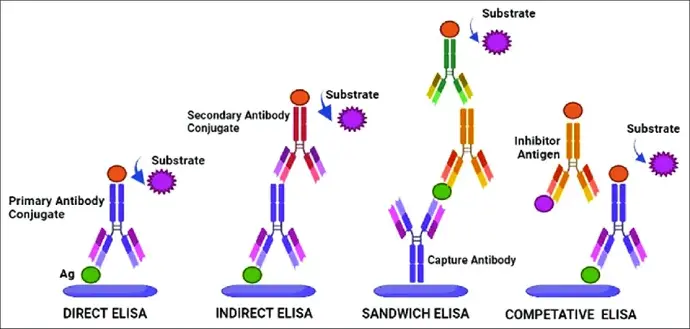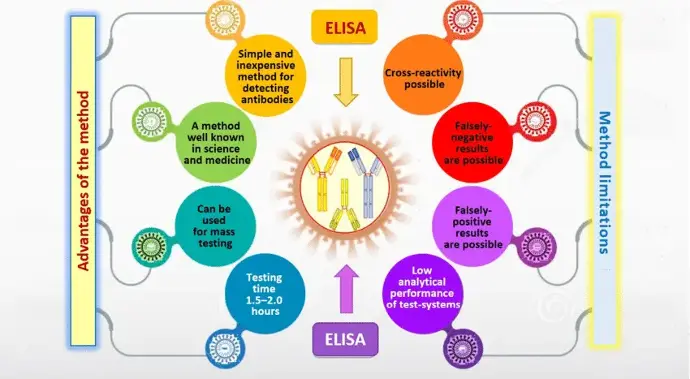
Enzyme-Linked Immunosorbent Assay (ELISA) is a crucial analytical biochemistry assay that plays a pivotal role in diagnostic applications. This technique is extensively used in medical and research laboratories due to its specificity, sensitivity, and versatility. Understanding the importance of ELISA in diagnostics requires an examination of its principles, applications, and advantages.
Learn More About ELISA Protocols
Principles of ELISA:
ELISA is based on the interaction between an antigen and an antibody. The assay involves the immobilization of an antigen on a solid surface, followed by the binding of a specific antibody to the antigen. This binding is detected and quantified using an enzyme-conjugated secondary antibody. The enzyme catalyzes a substrate reaction that produces a measurable signal, typically a color change, which is proportional to the amount of antigen present in the sample.
Applications in Diagnostics:
Infectious Disease Detection: ELISA is widely used for the detection of pathogens, such as bacteria, viruses, and parasites. For instance, it is a standard method for diagnosing HIV, Hepatitis B and C, and COVID-19. The test can detect both antigens and antibodies, making it useful for determining infection stages.
Hormone Level Monitoring: ELISA is employed to measure hormone levels in the blood, which is critical for diagnosing endocrine disorders. For example, it is used in assays for thyroid hormones, insulin, and reproductive hormones.
Allergen Testing: In allergy diagnostics, ELISA can detect specific IgE antibodies in the blood, which helps in identifying allergen sensitivities in individuals.
Cancer Marker Detection: Tumor markers such as PSA (Prostate-Specific Antigen) and CA 125 (Cancer Antigen 125) are measured using ELISA to aid in the diagnosis and monitoring of cancers.
Autoimmune Disease Diagnosis: ELISA is essential for detecting autoantibodies in conditions like rheumatoid arthritis, lupus, and celiac disease. The presence of these autoantibodies can indicate the onset or progression of autoimmune disorders.
Advantages of ELISA:
Specificity and Sensitivity: ELISA is highly specific due to the use of antibodies that precisely target the antigen of interest. The sensitivity of the assay allows for the detection of low levels of antigens or antibodies, making it suitable for early diagnosis of diseases.
Quantitative and Qualitative Analysis: ELISA can provide both qualitative and quantitative data. Qualitative results indicate the presence or absence of an antigen, while quantitative results provide a measure of the concentration of the antigen in the sample.
High Throughput: The assay is amenable to automation and can be performed in a high-throughput format, allowing for the simultaneous testing of multiple samples. This is particularly beneficial in clinical laboratories where large volumes of samples need to be processed efficiently.
Versatility: ELISA can be adapted for a wide range of targets, including proteins, peptides, hormones, and antibodies. This adaptability makes it a versatile tool in both clinical diagnostics and research settings.
Cost-Effectiveness: Compared to other diagnostic techniques like Western blotting or PCR, ELISA is relatively cost-effective, especially when used for large-scale screening.
Conclusion:
ELISA's role in diagnostics is indispensable due to its specificity, sensitivity, versatility, and ability to handle large sample volumes efficiently. As medical science advances, the development of new ELISA-based assays continues to enhance our ability to diagnose and monitor a variety of diseases accurately. This robust assay remains a cornerstone in clinical diagnostics, contributing significantly to public health by enabling timely and accurate disease detection.
Learn More About ELISA In The Following Video:

